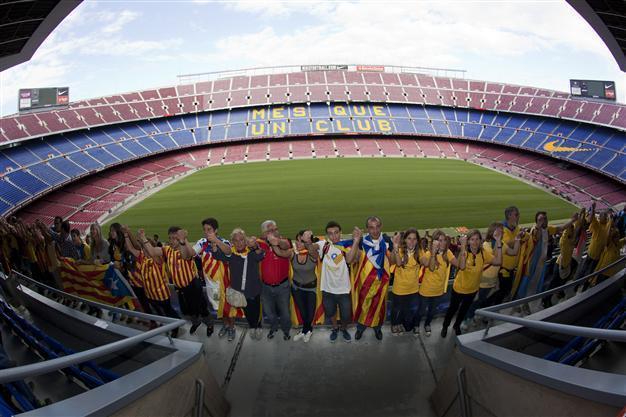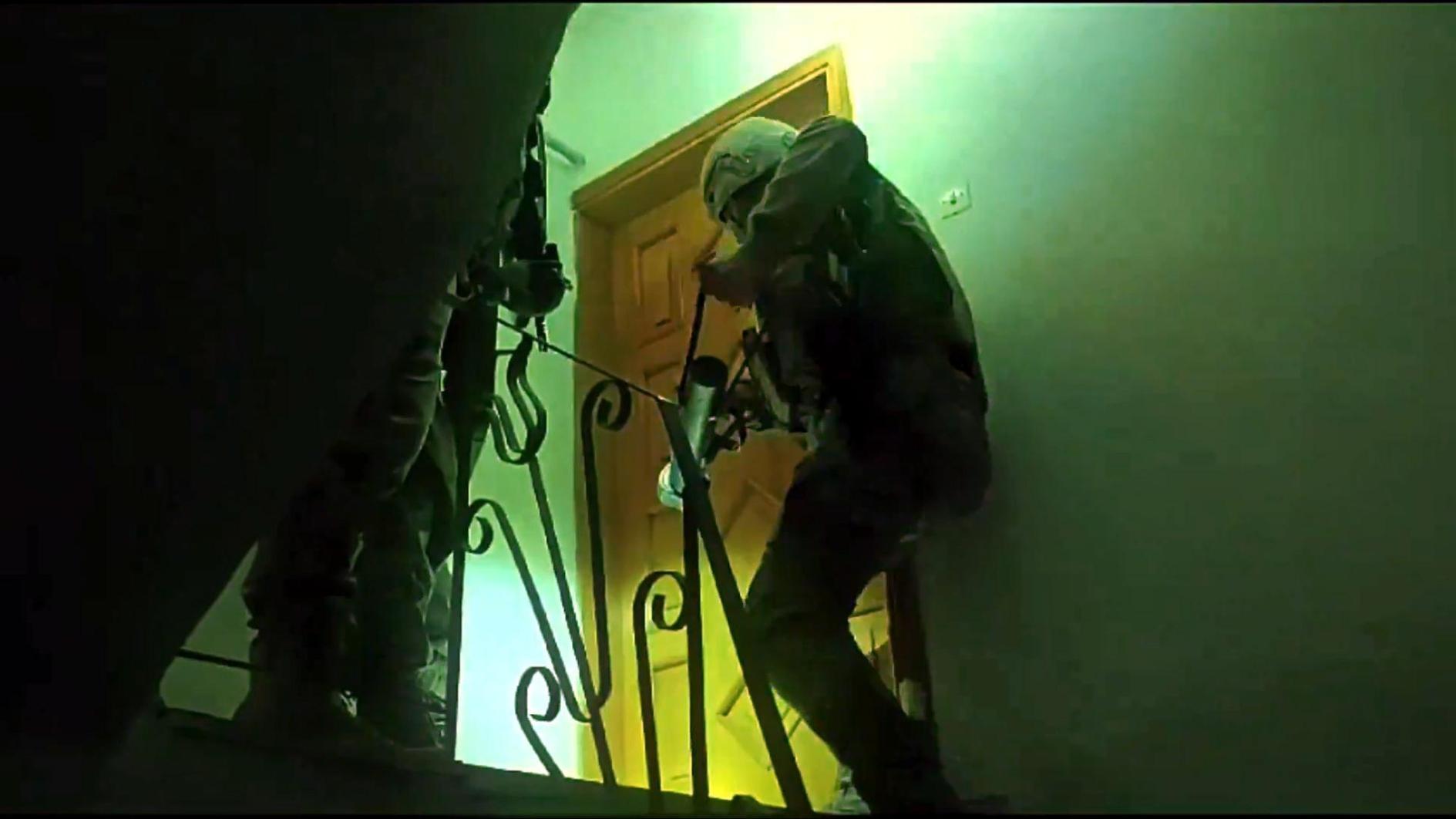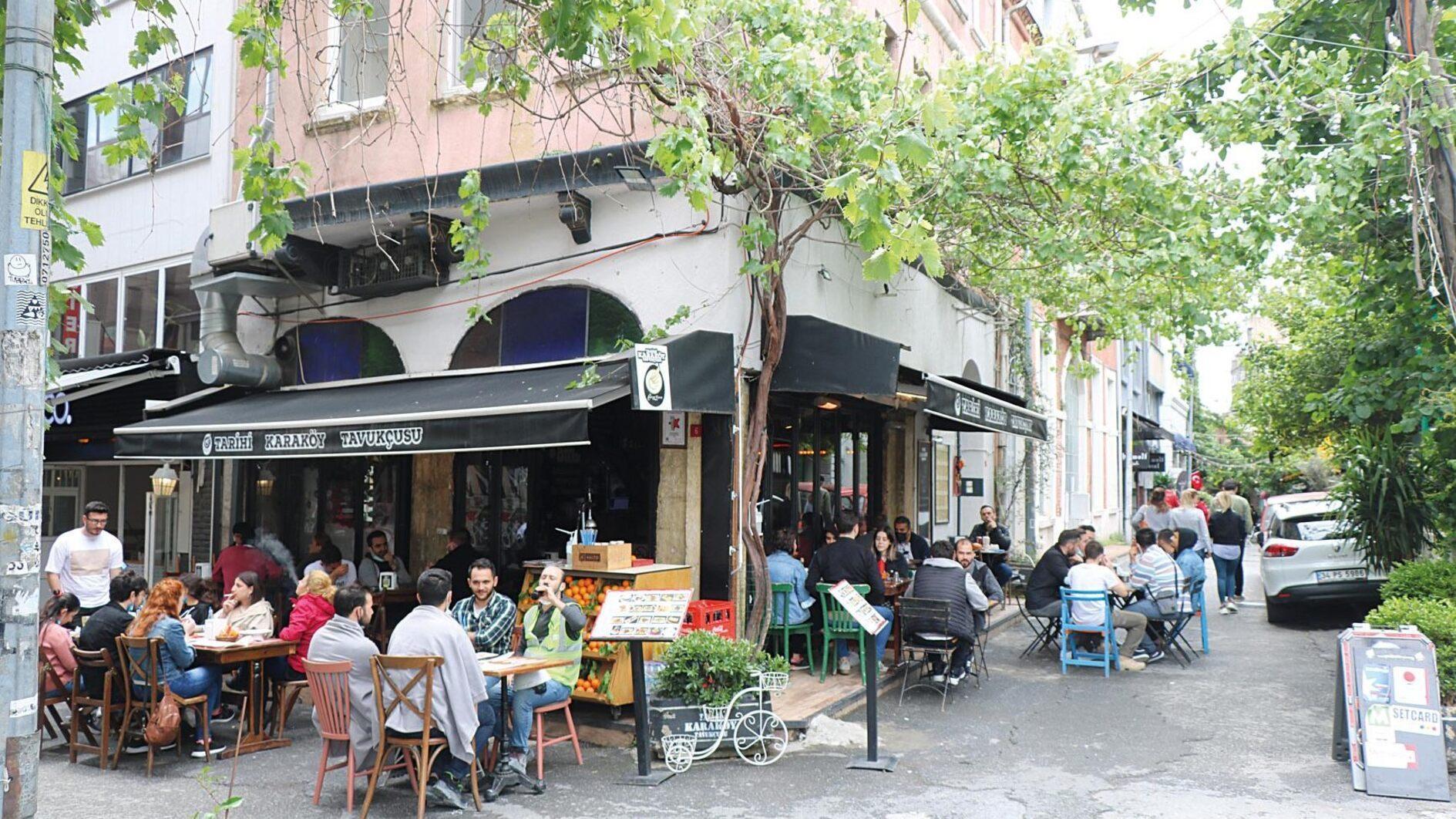Catalans form vast human chain for independence from Spain
BARCELONA - Agence France-Presse

Catalans link arms in a bid to create a 400-kilometre (250-mile) human chain, part of a campaign for independence from Spain during Catalonia National Day, or Diada, at FC Barcelona's Camp Nou stadium, on Sept. 11. AFP photo
Catalans massed in a vast human chain stretching hundreds of kilometres along the Mediterranean coast on Sept. 11, demanding independence from Spain in the face of fierce opposition from the national government.Hundreds of thousands of people in yellow t-shirts joined in, according to organisers, yelling "Independence!".
They linked hands along highways and through towns in the northeastern region, amid countless pro-independence flags bearing the red and yellow stripes of Catalonia overlaid with a white star on a blue background.
Proud of their Catalan language and culture, but suffering now in a recession, many of the 7.5 million people in debt-laden Catalonia say they feel slighted and short-changed by the central government which redistributes their taxes.
"We need to put an end to the cultural and economic suffocation we are suffering," said Carme Forcadell, president of the Catalan National Assembly, the grassroots group organising the human chain.
"We have come out in our hundreds of thousands into the street to show in a democratic and inclusive way that we are capable of achieving any aim we set ourselves," she told the crowd in central Barcelona.
She said earlier that the rally aimed to draw 400,000 people and to stretch for 400 kilometres (250 miles) along Catalonia's Mediterranean coast.
The chain passed by landmarks such as the Sagrada Familia basilica in Barcelona and the city's Camp Nou football stadium.
Demonstrators wore yellow t-shirts bearing the slogan "Catalan Way Towards Independence".
Referendum set for 2014
They joined hands at 5:14 pm (1514 GMT) as rain showers gave way to sunshine.
The timing was a reference to the year 1714, the date of the military defeat which for many Catalan nationalists marked the beginning of oppression by the Spanish state.
The protest marked Catalonia's national day, the Diada, which recalls the conquest of Barcelona by Spanish king Philip V's forces that year.
Prime Minister Mariano Rajoy's right-leaning government refuses to countenance a breakup of Spain, and has vowed to block a referendum on self-rule that Catalonia's regional president Artur Mas has promised for 2014.
A referendum would be a "unilateral declaration of independence that would have serious consequences for Spain and also for Catalonia" which would have to "bid farewell to the European Union", Spanish Foreign Minister Jose Manuel Garcia-Margallo warned.
"Despite the government's attempts to go against the will of the people, we want to show that we can achieve independence peacefully," said Albert Garcia, a 60-year-old doctor, holding a big independence flag in thedemo.
Mas, who avoids using the word "independence" in his demands, said Catalans "must be consulted next year on their political future" and vowed to use all "legal and democratic means" to that end.
He confirmed on Sept. 11 that he had held covert talks on the issue with Rajoy on August 29.
"We are in dialogue with the government but I doubt very much that this dialogue will bear fruit. I do not see any political will," he told foreign reporters in a briefing. Catalonia has long been considered an engine of Spain's economy, but it has suffered in the economic crisis of recent years.
Its unemployment rate has climbed close to 24 percent, its debts exceed 50 billion euros ($67 billion) and it has had to ask Madrid for 9.07 billion euros from a fund to help debt-laden regions.
Last year Rajoy rejected Mas's demands to give Catalonia greater freedom to tax and spend.
"That would have solved much of the problem a year ago, but now, a fiscal pact will not solve the problem," Mas said.
















